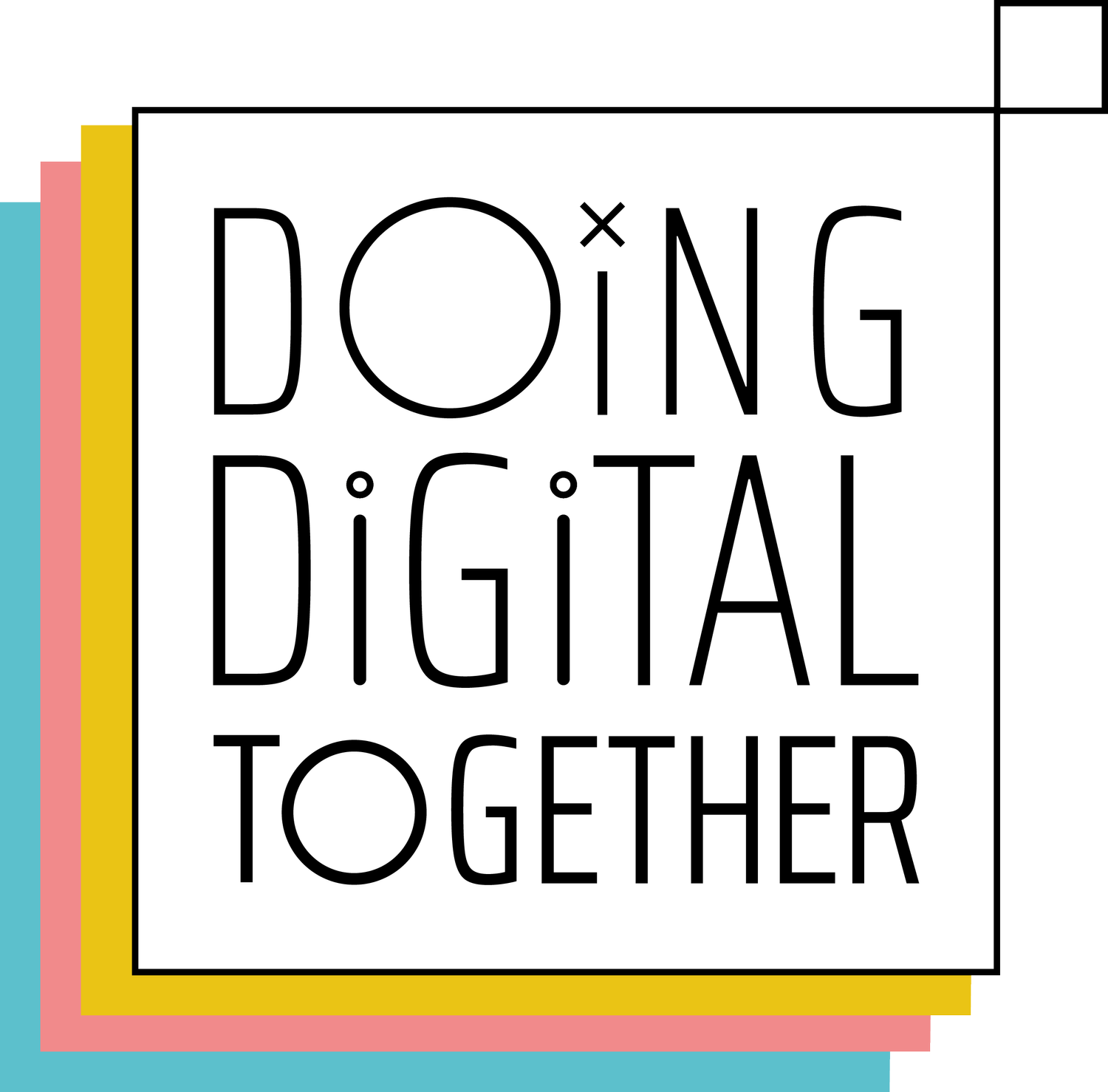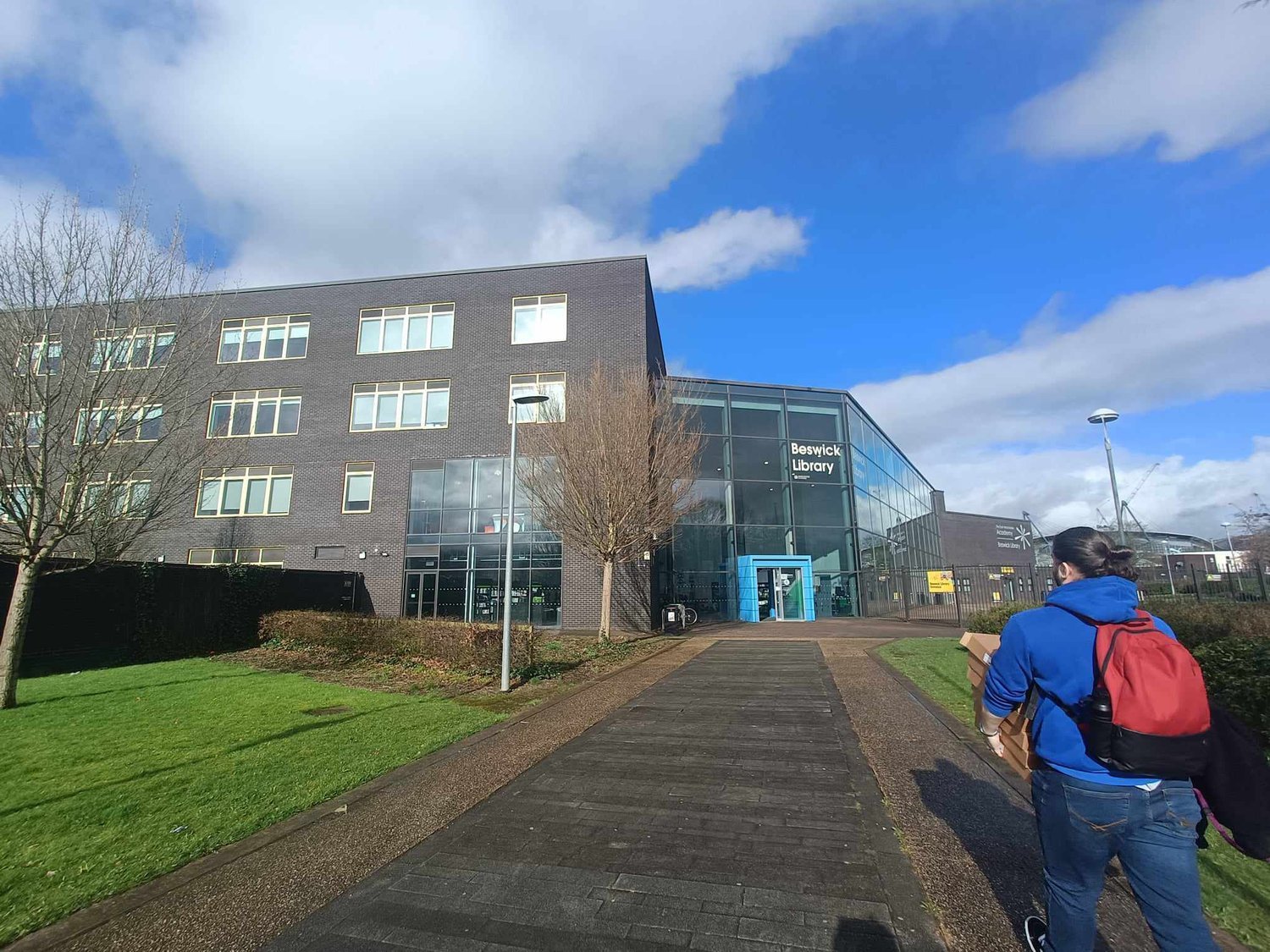Bridging the Digital Divide: Helping Families to Overcome Digital Exclusion in Manchester
Digital Strategy Office, Data Adamia, approaches Beswick Library.
What are the real consequences of digital exclusion for children in the UK?
Imagine you’ve just started Year 7.
As you wait nervously in the playground with your too-long tie, two other children say hello. You all like the same TV show, and they invite you to play an online game with them after-school.
In tutor time, you’re told that you’ll need to practice your spelling every week on the new app your teacher’s introduced to the class – remember, you’ll need to get them on time!
You file into assembly, where a kind-looking visitor shares a list of online resources that you can use to ask for help if you’re struggling with your mental health.
At the end of the day, everyone’s excited to learn that there’s going to be a History trip to the museum next week; your parents just need to read the information that’s been sent out via the school’s app and fill out the consent form.
A good first day?
For almost half of all children in the UK, these asks might be impossible.
45% of households with children are missing out on full access to educational opportunities, avenues of communication, vital services, and digital literacy skills.
In March 2024, the Minimum Digital Living Standard was launched, drawing upon research by the University of Liverpool , Loughborough University, and the Good Things Foundation to establish a benchmark for what families feel is needed to feel included in digital society. The MDLS aims to provide a holistic approach to understanding digital exclusion, and accounts for the barriers that inadequate access data, skills, education, and training can present for families across the UK.
Currently, 3.7 million households with children in the UK fall short of that standard.
That means that 45% of households with children are missing out on full access to educational opportunities, avenues of communication, vital services, and digital literacy skills.
Every child deserves to have the means to achieve the future of their choice, but in an increasingly digital world – where healthcare, education, and jobs are dependent on digital skills – lack of access can present an insurmountable barrier to success. Digital exclusion hugely amplifies existing inequalities, with families from low socio-economic background disproportionately impacted. Put simply, digital exclusion is social exclusion.
As part of the Making Manchester Fairer plan, Manchester City Council is committed to making services, facilities and opportunities as fair as possible. This means that everyone should have the resources, knowledge and confidence engage with the digital world. The work of our Digital Inclusion team translates that vision into practical action.
Manchester City Council’s partnership with Community Computers, a not-for-profit initiative that refurbishes ex-business devices to deliver to people in need, enables the Digital Inclusion team to support Manchester residents struggling with connectivity, while reducing e-waste and championing sustainability.
In March, Digital Inclusion Officer Data Adamia visited Beswick Library to facilitate the handover of six refurbished digital devices to local parents. The laptops, donated by Community Computers, offer families the means to better support their children’ journey through education and access the opportunities needed to participate in everyday life more fully.
This important work could not have been possible without the support of Digital Champion volunteers Alice, Olufemi and Osmond, who assisted parents in setting up devices. Digital Champions generously offer their time and expertise to make a difference to the lives of others in their community, and play a crucial role in supporting the development of digital skills by ensuring the people they support can confidently use devices in their own homes.
Volunteer Digital Champion Osmond (right) provides support to help improve the lives of others in his local community.
For children in the household, having regular access to a device, and a parent with the knowledge and skills to effectively use digital technology, can be transformative in combatting disadvantage. Navigating school becomes easier with access to educational tools, enhancing children's learning and relieving pressure on families. Digital access and skills can be the difference between reaching out for support, or staying silent; travelling to a public place for study, or being able to revise at home; being able to take part in a school trip, or missing out.
To create a future for Manchester that is equitable and fair for everyone – where every child lives in a household that meets the minimum Digital Living Standard - supporting Digital Inclusion work is vital.



